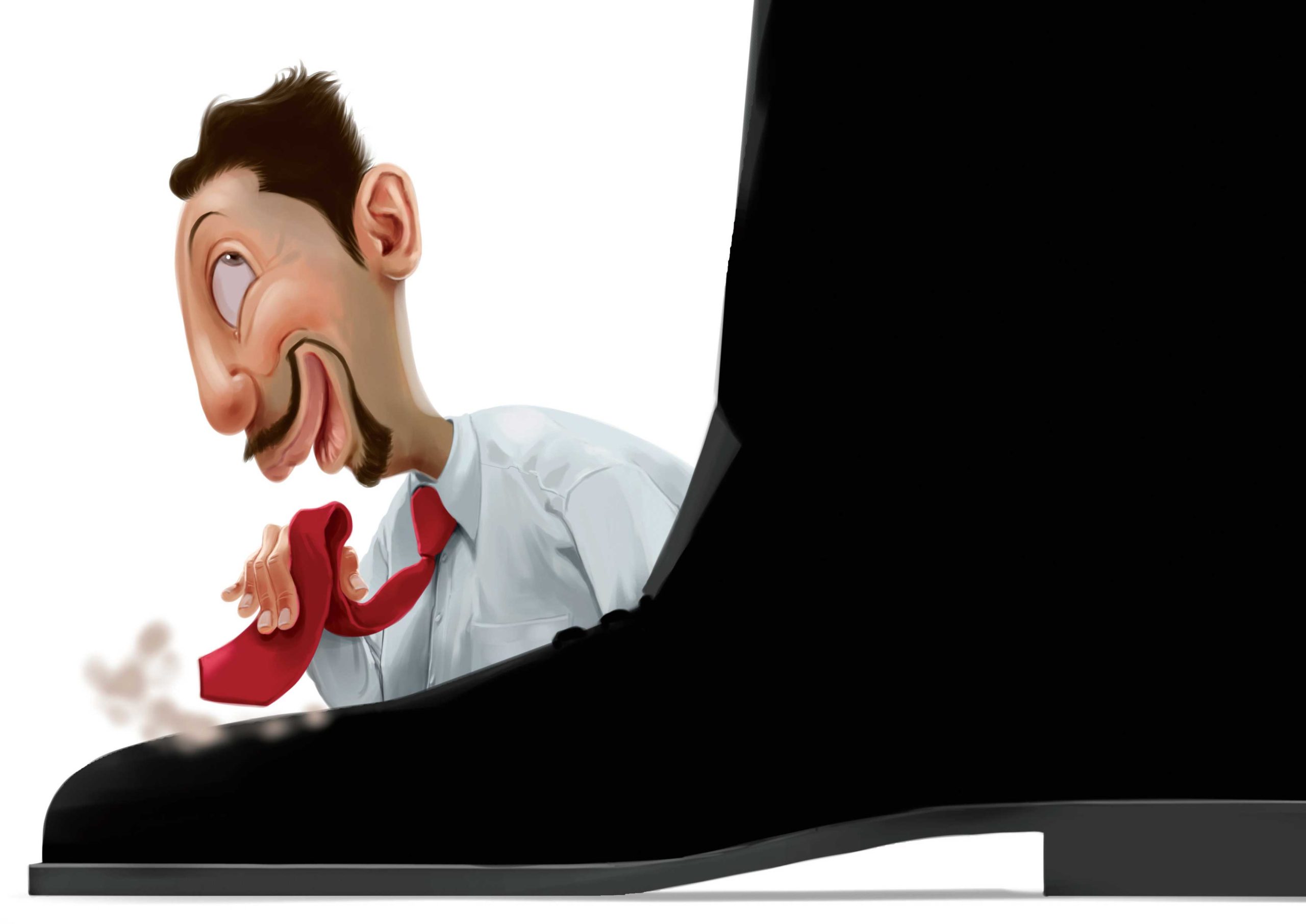
Many people look at me funny when I use sycophant in a sentence. Because it’s not used often, it should be used when talking about the people in Muncie, Indiana. It’s caused by years of withholding one’s truth for fear of reprisal. We talk about freedoms in this country, but are we free if we can’t speak our truth?
Of course not. If I have to withhold my truth, I’m scared. If I can’t be true to myself by speaking my truth, I’m not honest with anyone. I fear speaking up will have a negative consequence, so I am “weighing my words.” I’m not saying you should walk around being an asshole to people. Don’t pretend to be a humble man when you are a coward.
Definition of Sycophant
According to Merriam-Webster’s dictionary, a sycophant is “a servile self-seeking flatterer.” Notice that ‘servile’ has a link to its definition: “of or befitting a menial position” or “meanly or cravenly submissive.”
They even use the word “abject,” which means “cast down in spirit.” They also use “ingratiating” or “intended or adopted to gain favor.”
As you can see, sycophant does not have a positive connotation. I’m particularly interested in their definition of “self-seeking flatterer.” This means you flatter people for selfish reasons. In other words, you tell them nice things to gain favor, to manipulate them. Is this being true to yourself? Is it being honest with others? I believe it’s called being a manipulator.
We won’t even venture into the Greek derivation of the word because it was a vulgar expression used for certain politicians. I guess that makes sense when you think of it.
What about humility
Religious men will quickly claim they are not sycophants but humble. Trust me, I get that one a lot in Muncie, Indiana, or the so-called “Bible Belt.” There are churches on every corner. I should count one day because churches may outnumber liquor stores by a very close margin.
These religious men will tell you that Jesus was their role model because he walked humbly among his brethren.
I looked up the word “not proud” in the dictionary. It means “ not thinking of yourself as better than other people.”
Do you notice the subtle difference between humble and sycophant?
Once again, it’s about power
As spiritual beings, we get our power from one source. Many people around the world call it God. Some would say that Buddha or those of the Hindu faith have multiple gods all in play within the cosmos. Others would say the Infinite Source of Energy or the Great Spirit, which lives in everything. All of them are true. They all refer to this power as coming from without and connecting into all things above and below. He can be found in all things, Heaven and Earth.
Since we are all interconnected to this source, we serve this power and each other. When our physical bodies die, even stars, our accurate source returns to its creator, as do all things.
However, we aren’t subservient to other men—no human reins over us. We are not servants of man but of God, if you want to call it that. Man does not give us power. Money does not provide us with power. Status does not provide us with power. Titles do not provide us with power. Only God or the One True Source gives us power.
This is called nuance or subtle difference, but rulers over men have used this since the beginning. Their concept of power is control. Their concept of power is oppression. They want to place themselves over others for whatever excuse or justification they give. This illusion can only occur if sycophants allow it to happen. We are all equal on this planet. No one is better than, or worse than, any other. Jesus told us this by preaching the Sermon on the Mount. Do unto others and you would have done unto you.
When societies are formed, we must acknowledge this simple truth.
Do you think Jesus ended up on that cross because he was servile or a sycophant to those in power? Meditate on that one.
In summary
When we understand our relationship with the God of our choosing, we are extremely powerful spiritual beings. As human beings, though, we are no better or worse than any other man or woman. We are all the same. This is the truth. A wise man once said, “There is no difference between humans whether you live in the penthouse or a flophouse.”
Some have positional power over you, such as a work boss, but that’s only because we choose to place ourselves in a business hierarchy. In the government, we call them public servants for a reason. They serve or work for us in doing the business of the collective.
This brings our discussion back to sycophants. As the definition implies, sycophants choose to be subservient to other humans directly or indirectly. Every human has free will, so choice is essential, but not required. If you want to be servile to others, that is your choice.
However, if another person demands you to be subservient, or against your free will, that is called oppression.
I’ll leave you with the wisdom of Paulo Freire, a Brazilian educator who wrote a textbook on revolution:
“Leaders who do not act dialogically, but insist on imposing their decisions, do not organize the people–they manipulate them. They do not liberate, nor are they liberated: they oppress.”
https://www.freire.org/quotes-by-paulo-freire






